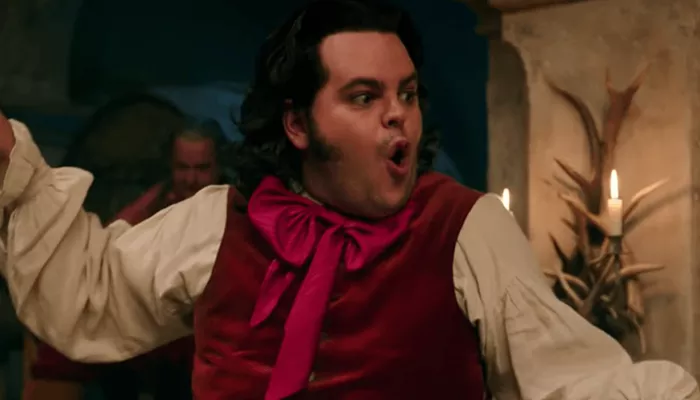Josh Gad has shed light on the full – blown story behind the gay LeFou controversy in Disney’s 2017 live – action remake of “Beauty and the Beast”. Prior to the film’s release, director Bill Condon, in an interview , hinted that the movie would feature “an exclusively gay moment” for LeFou. This led to expectations of LeFou being Disney’s first openly gay character. However, in the end, it merely amounted to a brief scene where LeFou was shown dancing with another man during the movie’s finale. Subsequently, Josh Gad expressed his regrets about the way this situation was managed.
In Gad’s new memoir, “In Gad We Trust” , he elaborates on his misgivings and discontent regarding LeFou being promoted as a groundbreaking figure for LGBTQIA+ representation. Gad clarifies that he doesn’t believe LeFou was a positive representation for the queer community and sympathizes with the negative reaction to the film’s underwhelming moment. He emphasizes that what was intended to be a “sweet and innocuous moment” turned out to be “both too little and not enough.” As Gad puts it in his memoir, “I for one certainly didn’t exactly feel like LeFou was who the queer community had been wistfully waiting for. I can’t quite imagine a Pride celebration in honor of the ‘cinematic watershed moment’ involving a quasi – villainous Disney sidekick dancing with a man for half a second. I mean, if I were gay, I’m sure I’d be pissed.”
What this means for “Beauty and the Beast” is that several missteps were made. Although the 2017 live – action remake is considered one of Disney’s better efforts in this regard, the handling of the LeFou controversy, both within the movie and in its publicity, has left an indelible mark. In his memoir, Gad details the behind – the – scenes discussions about LeFou’s loyalty and feelings towards Gaston (played by Luke Evans). The general consensus was that LeFou’s devotion to Gaston was neither romantic nor sexual, and the creative team of “Beauty and the Beast” never seriously considered exploring LeFou’s sexuality.
Consequently, Gad agreed to the dancing scene, thinking it was “cheeky” and “harmless.” He believes that it would have remained so if not for the way “we pointed it out and seemingly congratulated ourselves.” Bill Condon, who is gay, felt pressured “to share his pride for some form of representation in the film” and later “felt awful” about the impact of his comment. This led to accusations of queerbaiting, boycotts, and the movie being banned in some countries. Despite these setbacks, the remake still achieved a remarkable $1.2 billion at the box office.
Josh Gad’s comments extends beyond the confines of “Beauty and the Beast.” Gad’s remarks further illustrate the mismanagement of his character in the film. If LeFou was indeed intended to be gay, the movie should have delved much deeper into this aspect, and the teasing of his sexuality in the first place was ill – advised. This is a sentiment seemingly shared by Gad, Condon, and all those involved. The “Beauty and the Beast” controversy serves as a poignant reminder of the significance of authentic queer representation, highlighting that a moment so fleeting that one could miss it does not equate to genuine and meaningful representation.
Related content”

